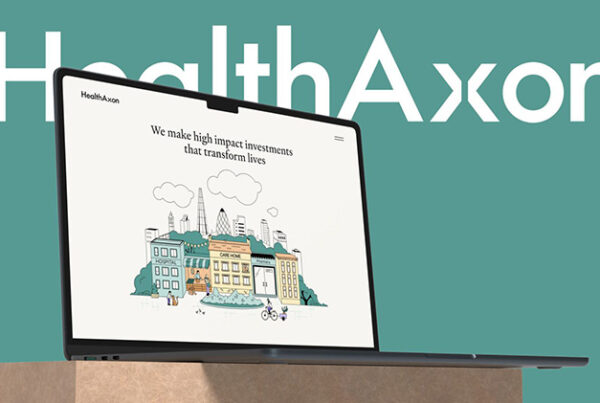 So, you just launched a fresh new website with all the trimmings – a beautiful web design, optimized UX and great content. That’s all well and good, but the key to having a successful online presence doesn’t stop there. In fact, it’s really only the beginning.
So, you just launched a fresh new website with all the trimmings – a beautiful web design, optimized UX and great content. That’s all well and good, but the key to having a successful online presence doesn’t stop there. In fact, it’s really only the beginning.
Often businesses will invest in a shiny new website design only to leave it to its own devices.
“Our website looks great, we can just let it run and watch the leads pour in, right?”
Wrong.
Maintaining your website is crucial if you want to uphold your brand image and ensure that your customers keep coming back to you. Leave it out of your marketing plan and you’re selling yourself short.
Related Articles:
- Common Web Design Mistakes That Make your Website Look Unprofessional
- How to Improve Your Web Design in 10 steps
- Unsure of Whether you Need a New Website? View our Checklist to Find Out
Here we’ll discuss 5 key reasons why it’s important to regularly update your website, explaining each one in depth.
1. Optimization

Probably the most obvious reason to keep your website up to date is for optimization purposes. This covers things such as page load speed and broken links, both factors that can make or break the user experience.
The average page load expectancy for any given web page is 1-2 seconds. Anything longer than 4 and your visitor is likely to abandon ship and move on to a competitor website. This also negatively affects your site’s SEO, which we’ll talk more about later.
The same can be said for broken links. If a visitor clicks a link on to your website only to land on a 404, well, that doesn’t look great for your brand.
But how do I optimize my website?
Here are some key things that you can keep an eye on (at the very least) to ensure that your website is running at its optimum:
a) Image size
Large images or graphics are common contributors to slow page loading times. You should always ensure that images are compressed (we recommend no larger than 500kb) before uploading them to your website.
b) Broken links
As previously mentioned, there’s nothing worse than a potential client clicking on a link to your website only to be faced with a big fat 404 Error. Whenever you remove a page from your website, always make sure that there are no internal links still pointing to it. It’s also a good idea to try and make sure that no third-party websites are pointing to it either.
c) Mobile responsiveness
Did you know that up to 70% of your visitors could be viewing your website on a mobile device?
Given that websites are built on desktops, it can be quite easy to overlook the mobile experience entirely (what’s an AMP? you ask). However, due to the large amount of website traffic now coming from mobile phones, it’s important to consider how your website displays on a mobile, to ensure users get the same quality of experience as they would on a desktop or laptop.
A good web design agency will have factored this into the design process, although it’s important to keep in mind, especially if you are adding pages or uploading new content in-house.
d) JavaScript and CSS files
CSS, HTML and JavaScript files should be reduced to ensure faster loading of pages, and there are plenty of tools available to help you do this. Similarly, removing unnecessary code will also increase page speed – although if you aren’t well-versed in this area, we would recommend consulting a web developer for help.
Useful tip: If your website has been designed using a pre-built theme, you will need to account for the often-unnecessary functions that come with it, as these can slow down your website. Make sure that you are removing any functionality that doesn’t serve your website’s purpose.
2. Maintain Security
 Security probably isn’t the first thing that springs to mind when you think of website maintenance, however it’s actually the most important. If your website is running on a CMS (Content Management System) such as WordPress (which many are) you need to ensure that you are keeping on track with software patches and security updates as and when they are released, otherwise you are leaving your data vulnerable to hackers.
Security probably isn’t the first thing that springs to mind when you think of website maintenance, however it’s actually the most important. If your website is running on a CMS (Content Management System) such as WordPress (which many are) you need to ensure that you are keeping on track with software patches and security updates as and when they are released, otherwise you are leaving your data vulnerable to hackers.
You also need to ensure that you are keeping plugins to a minimum and deactivating any that aren’t in use (this can also help with site speed), as well as running daily backups. If for whatever reason you lose your website and don’t have it backed up – you’re back to square one, and that’s not good for anyone.
3. Stay Relevant in a Competitive Landscape
 Every business has competitors. If you aren’t regularly thinking of new ways to attract and retain your audience, your competitors will be.
Every business has competitors. If you aren’t regularly thinking of new ways to attract and retain your audience, your competitors will be.
User experience is vital when it comes to visitor retention – therefore it’s good practise to constantly review it. Are there more succinct ways of displaying your information to get your message across more quickly? How long does it take for visitors to find the information they’re looking for?
Web designers and marketers are always coming up with new methods of improving the user experience. This might be through different ways of displaying content (think video, animation), software integrations or even new ways of displaying CTAs (Calls to action).
Injecting fresh elements into your website design helps to keep your brand at the forefront in a digital age where instant results are now practically expected.
Useful tip: Tools like Google Analytics are useful to use in conjunction with your website in order to get a better idea of the user journey. You can find out things like where your visitors are located, how they are landing on your pages and which pages they are browsing when they’re on your website. It will also tell you how long users spend on each page, so you can get a better idea of which content is working best and then make more of an effort to direct traffic there more quickly through your website layout and links.
4. Increase Website Authority & Traffic
 Are you using your website to engage regularly with your target audience and offer them useful information surrounding your product/service?
Are you using your website to engage regularly with your target audience and offer them useful information surrounding your product/service?
This could be in the form of blog posts, case studies or product videos – but also relates to your page content too.
Consistently publishing relevant and quality content will help maintain and even improve your SEO (search engine optimization), which basically means how you rank on search engines such as Google and Yahoo. In the same vein, a website with outdated content and broken pages will do the opposite.
5. Maintain your Brand’s Credibility
 Ultimately, your website will dictate how you’re perceived by your audience.
Ultimately, your website will dictate how you’re perceived by your audience.
It might seem obvious, but small things like ensuring your company information is up to date will show your visitors that you’re a credible business. For example, if the copyright year on your website’s design is displaying as 2016 – a potential customer wouldn’t be mistaken for assuming that your business is no longer in operation.
Always ensure that you’re updating contact/company information and other time-sensitive content such as your Terms & Conditions and Privacy Policy.
Here we’ve discussed some of the key reasons why website maintenance is so important, which all relate back to the same thing: ensuring that you stay competitive in the digital age.
If you have any questions or queries about any of the topics we’ve discussed, feel free to contact us and speak to a member of our team today – we will be glad to assist you.


